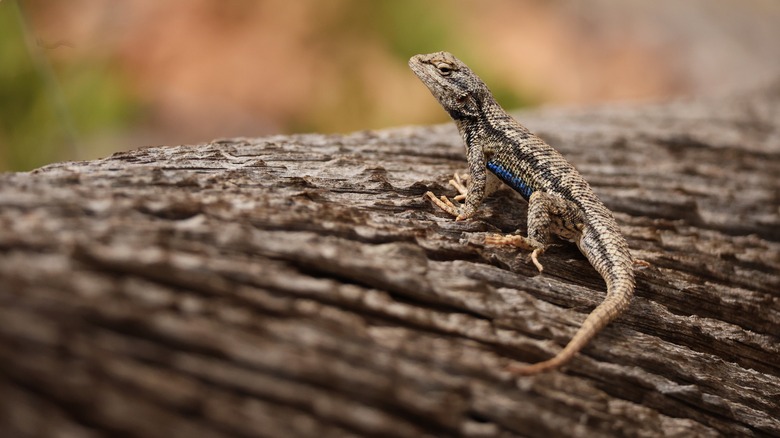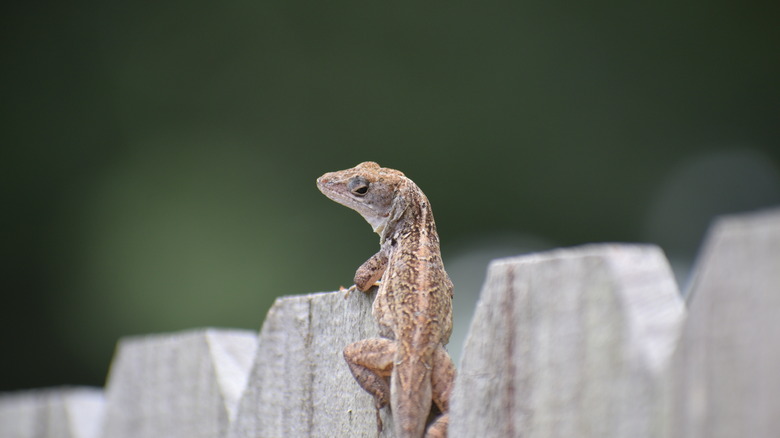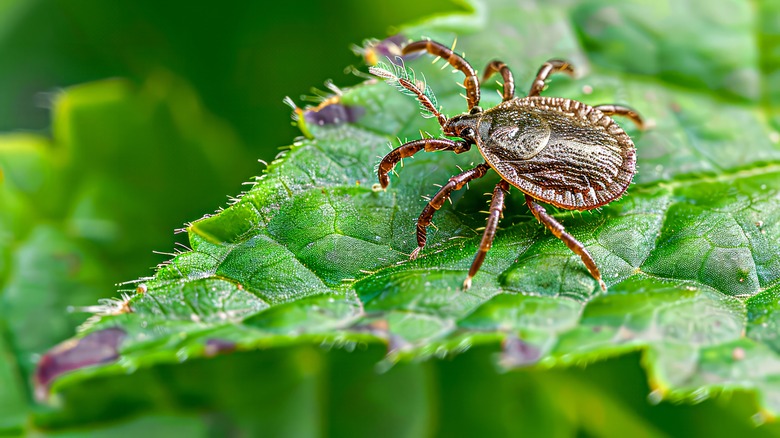Don't Get Rid Of Lizards In Your Garden & Around Your Home. Here's Why
Some people are afraid of the number 13. Some panic at the dizzying height of standing on a dining chair. And for others, it's lizards that inspire our irrational (but very real) fear. Of course, in quieter moments, those of us with phobias can acknowledge that our fears are unfounded, and that our foes might even be a net positive for the world. And so it is with lizards. They're good to have around — at least around the house, though not necessarily on your pants. They're useful for keeping down insect and other pest populations, and in just the right circumstances they might reduce your chances of getting Lyme disease.
Unless they make you afraid of weeding, there's no real reason to chase them out of the garden, but their real utility is around the house, garage, and outdoor living areas. Their habit of eating insects, spiders, ticks, snails, and slugs makes them desirable enough that you might want to consider tolerating lizards a little more. After all, they have no more interest in being in your hair than you are in having them there. But remember that everything is more complicated than it seems, and lizards aren't going to be a one-step strategy for managing pests or keeping ticks from taking over your lawn.
Lizards help with pests
That lizards eat ticks and many other garden insects — as well as slugs, snails, and more — would seem to make a conclusive case that you're better off with lizards around, no matter how creepy you feel when you're surprised by one. They're fairly indiscriminate eaters, which you could probably tell from the slugs. Their selection of prey is determined mostly by size and availability. For species like fence lizards and sagebrush lizards, this means that they mostly eat grasshoppers/crickets, beetles, flies, butterfly and moth larvae, wasps, ants, spiders, and hemiptera, an order of insects that includes cicadas, aphids, shield bugs, and others. They might also have a preference for mayflies, when they're around.
The takeaway is that lizards will eat whatever they can choke down. They do it less often than you might guess, usually foraging twice a day and otherwise spending a huge percentage of their time basking or resting. Or perhaps that's basking and resting; either way, they're not doing much, and certainly not hunting prey. Because they aren't picky eaters, you can think of their pest-eating habits as broad-spectrum. That is, they don't focus on bugs we find deleterious, or beneficial, for that matter. So they're as likely to eat beneficial insects as not. Their diet suggests they happen to feast more on the bad guys, including snails and slugs, so that's good for gardeners. And it's all good for keeping unwanted insects and spiders away from our homes.
Lizards are part of the anti-tick picture
Lizards might also improve your odds of avoiding Lyme disease. The Journal of Parasitology found the western fence lizard has a protein in its blood that prevents the lizard from becoming infected with Lyme disease and cures the tick as well, perhaps explaining why ticks in the Northeastern U.S. are 25 times more likely to harbor the pathogen than a tick in California (about 90% of Lyme disease cases come from the Northeastern quarter of the U.S.).
But don't import thousands of lizards just yet, and certainly don't go biting them yourself in a bid for Lyme disease immunity (they do frequently harbor salmonella on their skin, after all). A 2011 study in Proceedings of the Royal Society B: Biological Sciences showed that removal of western fence lizards from an environment can lead to a larger number of ticks carrying Lyme disease because they're feeding juvenile ticks.
Furthermore, the juvenile ticks that mostly feed on western fence lizards are, therefore, mostly disinfecting non-infected ticks. Ultimately, it's not clear how much difference this effect actually makes. In many areas, it probably makes sense to take measures like moving swing sets and sandboxes away from wooded areas and cutting your lawn more frequently to avoid attracting fleas and ticks to your yard before you start using lots of pesticides. Our exclusive conversation with an expert on dealing with ticks has some other great advice you can tack onto your newfound encouragement of lizards.


